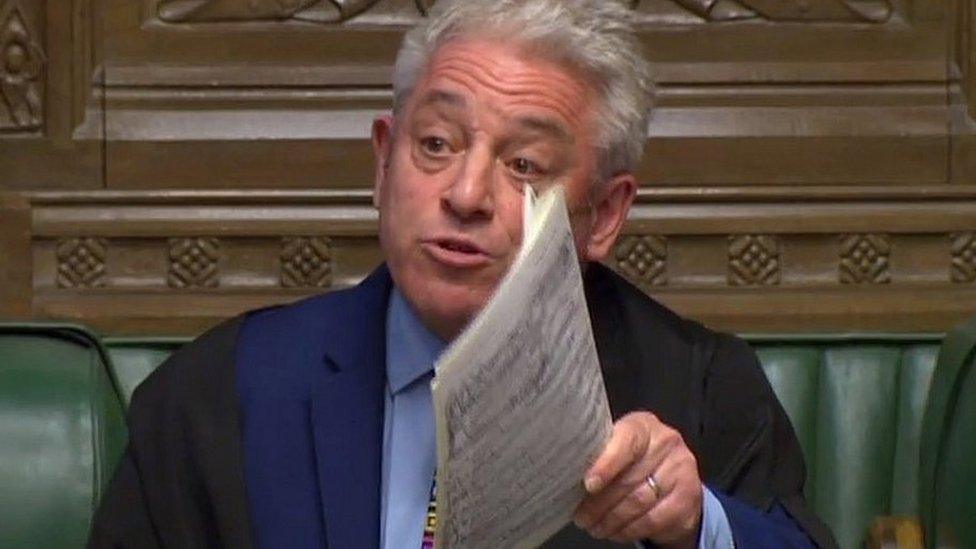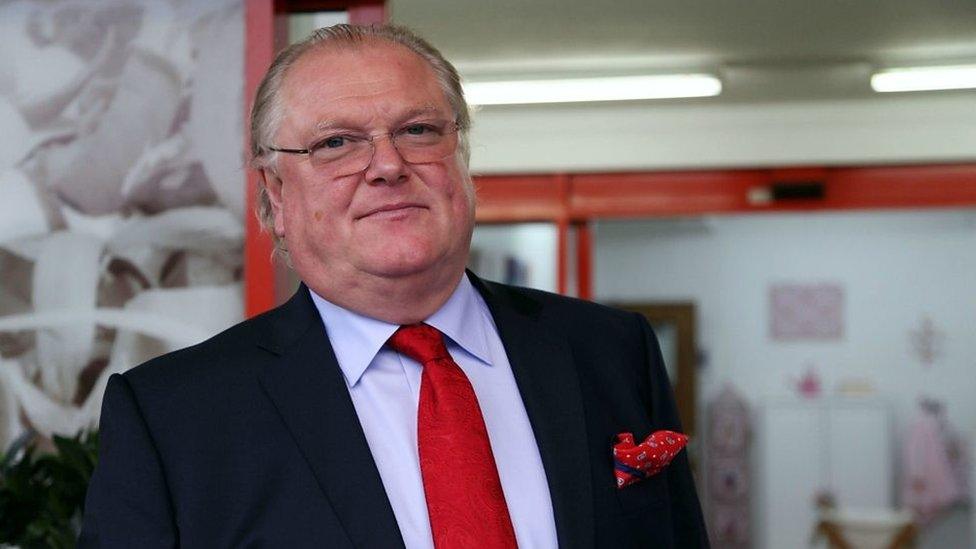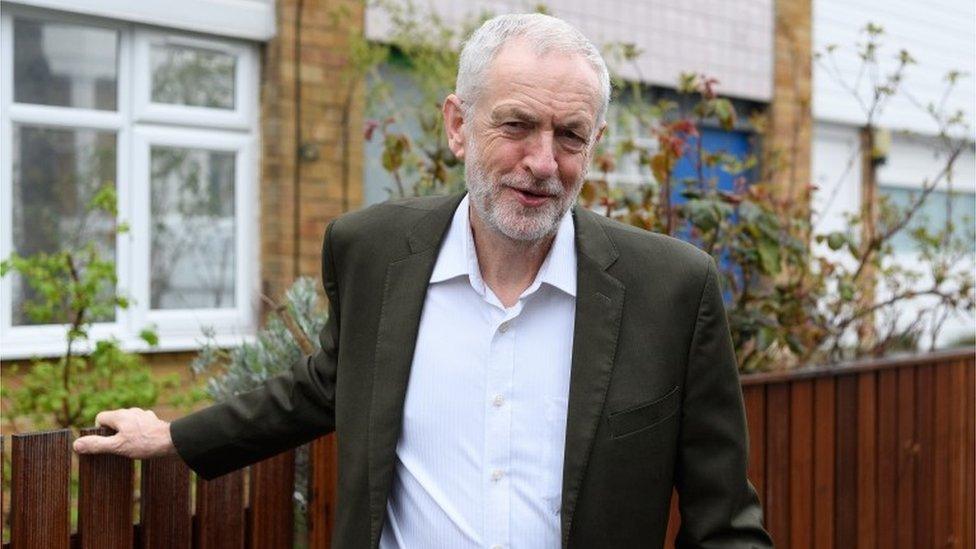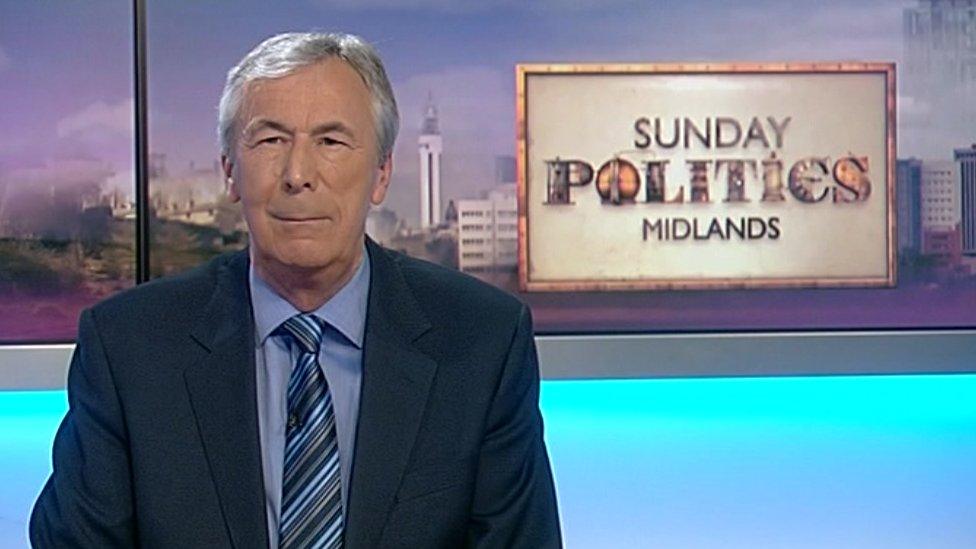Brexit deepens divisions and heightens distrust
- Published

Frustration at the role of Parliament is not confined to those waving placards and shouting the odds outside the Palace of Westminster
Commons Dysfunction
"This goes beyond Brexit now. This is about our democracy and a Parliament that can't function."
So said one of the protesters on the famous green just across the road from Parliament, while I was getting plugged-up for yet another live "hit" into Midlands Today.
"How can the MPs be truly representative" asked another, "when the country is about 50-50 and they're about 75-25?"
I was tempted to reply that a divided, or even a fragmented, House of Commons is indeed entirely representative of a divided, fragmented country. But I held back. This is no time to be facetious.
Frustration at the role of Parliament is not confined to those waving placards and shouting the odds outside the Palace of Westminster.
Digby, Lord Jones of Birmingham, crossbench peer, former trade minister and, now, proud Warwickshire man, says: "Parliament has let the country down.
"The voters gave them an instruction and Parliament has failed to deliver its side of the bargain."
Bercow's Bombshell

Speaker John Bercow has ruled the government cannot present a motion on its Withdrawal Agreement if it is "substantially the same" as the one rejected last week
We like our politicians to have convictions. We also like them to check the small print.
So should we really grumble if they treat us to endless displays of collective and personal fury, tantrums and accusations?
While at the same time they're also contriving to tie themselves up in procedural knots and constitutional convolutions?
Our latest example has come in the shape of Bercow's Bombshell, the speaker's ruling on Monday that the government could not present a motion on its Withdrawal Agreement if it is "substantially the same" as the one emphatically defeated in last week's "meaningful vote".
The gallows humour among my colleagues in the lobby at Westminster had already raised the spectre of MV55, and counting. Many a true word....

Digby, Lord Jones of Birmingham, says: "Parliament has let the country down"
It seems to me that it just about sums everything up when the MPs can't even agree about what the effects of John Bercow's intervention are likely to be.
Opinions range from those confidently predicting that it will make little substantial difference to the political process, to those others who reckon it's killed Theresa May's deal stone dead.
Whether any delay can be confined to a short, technical, period of a few weeks or be extended to a period of months or even years, we can only guess until after Mrs May's next encounter with her fellow leaders at this weekend's European Council summit.
Mr Bercow has at least given Mrs May an excuse for playing for time without having to take all the blame herself for needing to request a delay.
Countdown to what?

Jeremy Corbyn has repeatedly called for a general election
Another referendum? A long delay would clearly increase the chances.
Some of Speaker Bercow's critics suspect that's why he has made his move.
A general election? Jeremy Corbyn and his front bench colleagues never tire of calling for one, as Opposition leaders are always obliged to do.
But with how much real conviction, when public opinion is in such turmoil?
The potential for unpredictable, divisive and even disruptive mood swings is greater now than at any other time my long memory can recall.
And given that these issues cut through as much between the two biggest parties, surely the pressure of an election campaign would simply put their internal disputes on parade, far from enabling them to march together behind a unifying drum beat.
Pity the poor souls who would have to write their respective manifestos.
One of my Westminster lobby colleagues told me recently about a chat he'd had with two backbenchers, one Conservative, the other Labour.
Asked about the possibility of an early general election, the one MP responded: "We'll be slaughtered!" "No. WE'LL be slaughtered," replied the other.
And all the time the uncertainties continue to mount up here in our industrial heartlands, from the manufacturing heavyweights like Jaguar Land Rover at the one end to the countless small engineering businesses in their integrated supply chains.
And in the shire counties too, where rural communities which depend on farming are at their wits' end.
Then there are the townies in places like Leamington Spa with its cutting-edge, global, computer games industry.
And the skilled craftsmen and women of Walsall, where they've been making saddles for the world since the Middle Ages.
Sunday Politics Midlands

Patrick Burns will be interviewing Conservative MP Eddie Hughes and Labour's Ruth Smeeth in this week's Sunday Politics Midlands
And it's to one of the town's two MPs that I'll be turning this weekend.
Eddie Hughes captured Walsall North off Labour for the Conservatives at the last general election, when his party presented itself as the better bet to deliver Brexit in a strong Leave-supporting area.
Also joining me in the studio will be a Labour MP in another Leave-supporting constituency, Stoke-on-Trent North: Ruth Smeeth resigned as an opposition parliamentary aide last week in order to be able to vote against a further referendum.
For an expert perspective, I'll also be talking to Prof Alex de Ruyte, the Director of the Institute for Brexit Studies at Birmingham City University.
And I hope you will join us too.
Sunday Politics Midlands is in our usual 11.00 slot this Sunday, 24 March 2019, on BBC One West Midlands.